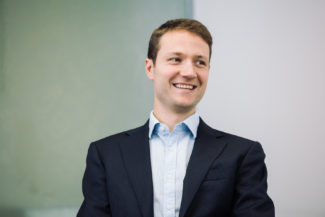From PHD To Trainee Solicitor
06.12.2017
Despite the impression given on some websites, the overwhelming majority of trainees at Bristows do not have PhDs and half do not have a scientific background at all. But for those PhD students considering a legal career, or those at the end of an undergraduate science degree considering their options, here are a few thoughts on the differences and similarities of the two careers. I studied Chemistry as an undergraduate before pursing my PhD in Organic Chemistry which I finished in 2016. As a disclaimer, I understand that a humanities PhD (of which there are a few at Bristows) can be a very different (and often more lonely) research undertaking so some experiences may vary!
The differences
You’re a lot less autonomous. During a PhD you’re very much in charge of your day-to-day routine – what experiments to do, what papers to read. If meticulous enough you can plan out every week of your next three to six months. Occasionally your supervisor (or science) might throw a spanner in the works but when you arrive in the morning you usually know what you’ll be doing mid-afternoon. As a trainee the work is very varied, and often new work can come at you from different directions. As a result, trainees have to be a lot more flexible and learn how to prioritise.
The similarities
Law works in a similar way to science. You’re presented with problems of vastly varying sizes. You could be working in a team on a large litigation. This is like a drug discovery project: a task spanning several years that will involve tens of people, where the head of the lab group oversees the whole project and the PhD student carves out their own niche within it. Or you can assist on a small piece of advice where you do 90% of the research and the drafting; think of this as one of the small challenges that appear in the lab each week – for example how to make a specific bond or tailor an assay.
In both science and law you scope out and discuss the issue with your supervisor before embarking on research in journals, text books and (for law only) case law. For those smaller pieces of work, this is sufficient to advise the client or try the new reaction. In the larger trial work there will often be substantial time devoted to document review, disclosure and bundling (preparing folders of documents for barristers and court). Think of this as the day-to-day lab work; scaling up that new reaction, carrying out that perfected assay hundreds of times. It’s not always the most thrilling work but it’s vital to the research and the legal process. And finally at the end of it all you go to the trial or your viva.
One of the best experiences in the science PhD is setting up those key project-defining experiments and coming in the next morning with eager expectation to find the results. Or having another group develop a new technique that was exactly what you needed to progress further. Law has the same excitements – the discovery of a key document that supports your argument or the release of a new judgment that provides a new line of attack or defence. Similarly I remember fondly debates in group meetings on the meaning of a new paper and this is replicated at Bristows – the implications of the latest development in patent case law are far from settled and it was fascinating to discuss this with the partners in a recent know-how meeting.
In between all of this, and just like in the lab, you’ll assist in writing presentations, attend training sessions and social events. There are of course differences, and for me, those differences make for a more varied environment. First instead of being on one large project for three years, you’re more likely to have three very different cases on the go, all at different stages in the process and all with different arguments. The smaller pieces of advice nicely break up the larger document review exercises and challenges you with new bits of law.
Making the switch
For anyone considering moving into law I would thoroughly recommend applying to one of Bristows’ workshops to gain a greater insight into the career and the firm. The workshops take place over two days (a lot less than some other vacation schemes – it’s not always easy to ask your supervisor for two weeks off!), but give you plenty of opportunity to work out if Bristows is the place for you.

Jonathan Ross
Author
